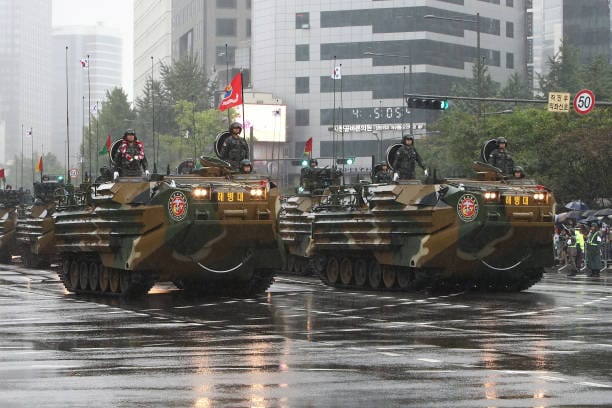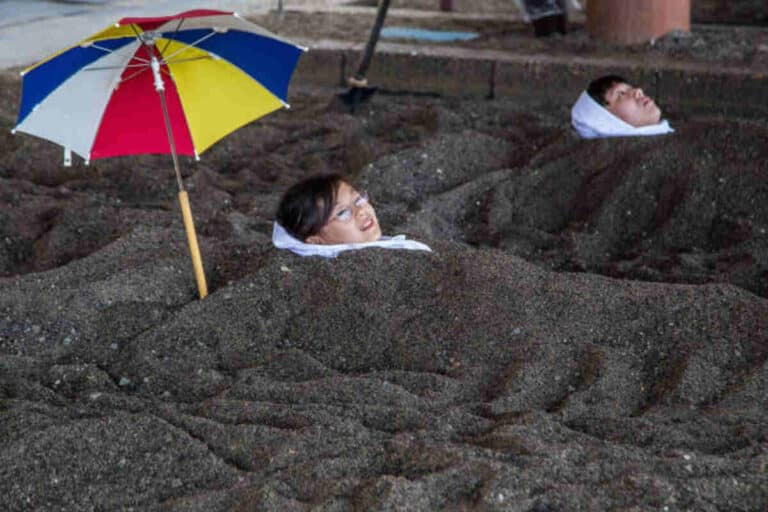

Historic parliamentary session overturns martial law in South Korea, restoring democratic order.(Photo by Chung Sung-Jun/Getty Images)
Seoul, In a tense overnight session, South Korea’s National Assembly unanimously overturned President Yoon Suk Yeol’s martial law declaration just two and a half hours after it was imposed.
Troops stationed within the parliamentary compound promptly withdrew as tensions de-escalated, marking a significant assertion of legislative authority over executive power.
The Assembly convened an emergency meeting at 12:48 a.m., swiftly passing a resolution by 1:00 a.m. to nullify the martial law, according to Korean Times.
All 190 lawmakers present, representing both ruling and opposition factions, voted in unison, showcasing a rare moment of political solidarity.
Speaker Woo Won-shik emphasized the constitutional breach, stating, “The Constitution mandates the president to report the declaration of martial law to the National Assembly without delay.
This was not done, making the president accountable for this failure.” Woo reassured that the process adhered strictly to the Martial Law Act and parliamentary protocols, ensuring no procedural lapses.
Addressing the troops still present on the Assembly grounds, he declared the martial law nullified, urging all military and police personnel to retreat immediately.
Earlier, the sudden imposition of martial law saw police blockading Assembly entrances while troops, some deploying from helicopters, attempted to storm the main chamber. The chaotic scenes included troops breaking windows to force entry, heightening public alarm.
Lawmakers Vote to Overturn Martial Law
Following the repeal resolution, opposition leader Lee Jae-myung of the Democratic Party of Korea sought to calm the nation.
“With all 190 lawmakers voting in favor, martial law has been repealed. Citizens can rest assured. The Democratic Party will remain in the Assembly until the president formally announces the repeal and will protect the safety and lives of the people to the very end,” he affirmed.
Ruling People Power Party leader Han Dong-hoon echoed this stance, declaring the martial law invalid. In a social media post, he wrote, “The Assembly’s resolution effectively renders martial law void. From this moment on, any actions taken by state agencies, including the military and police, under the pretense of martial law, would be unlawful. I urge all forces to refrain from any reckless acts that infringe upon the people’s rights and freedoms.”
Lawmakers from both parties continue to monitor compliance from within the chamber, underscoring their commitment to upholding democratic processes. This decisive parliamentary move not only defused immediate tensions but also reinforced the Assembly’s role as a check on executive overreach.
South Korea’s political outlook has long been marked by tensions between executive authority and parliamentary oversight, rooted in its history of military coups and authoritarian rule.
Also Read: India Teams Up with Russia to Triple Nuclear Capacity by 2032
While the nation transitioned to a full democracy in the 1990s, concerns over presidential power remain a focal point.
Recent challenges include political polarization, economic uncertainty, and ongoing security threats from North Korea, all contributing to a volatile political environment where checks and balances are continuously being rigorously tested.







